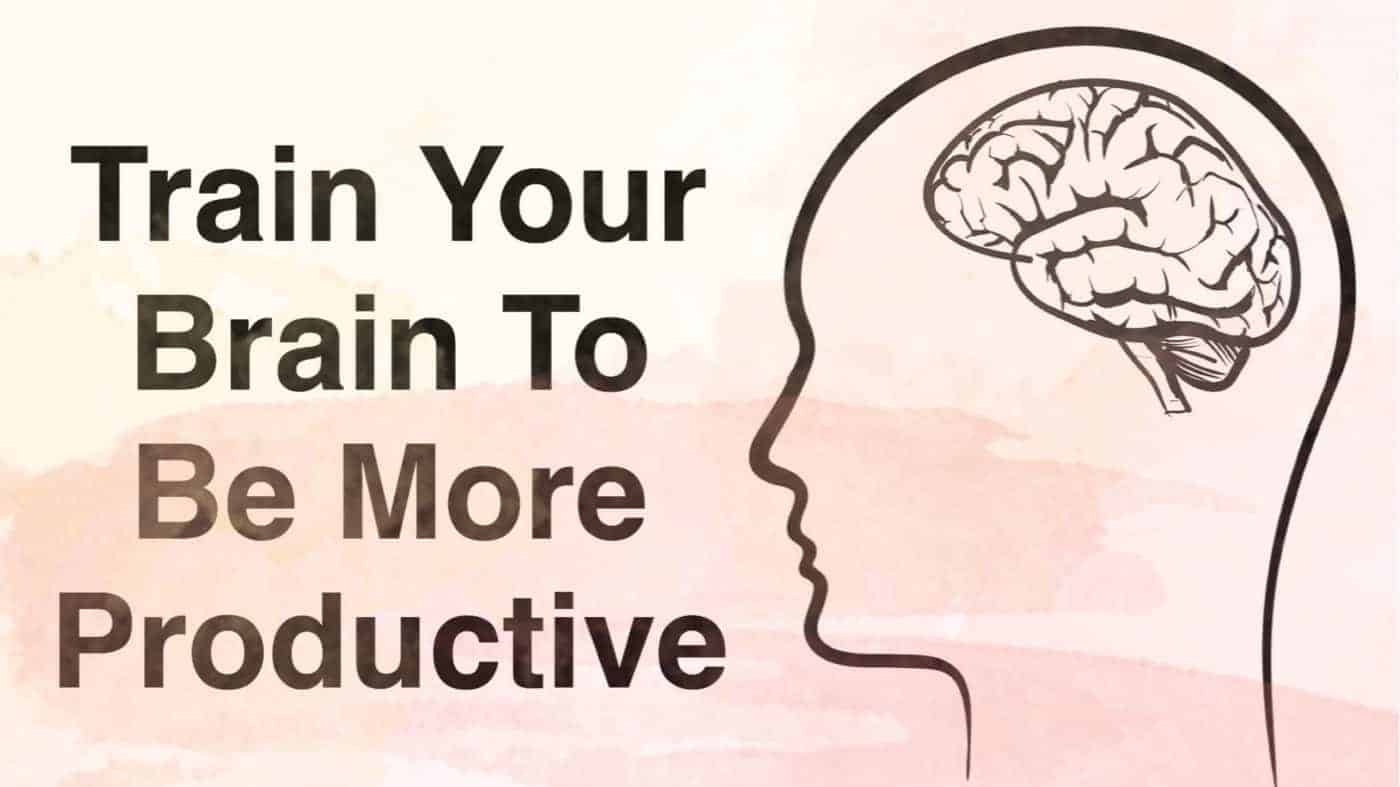The ability to be productive is necessary for all of us. It doesn’t matter if you’re the President of the United States or the President of a book club. Every job, task, and responsibility requires a productive mindset to achieve a positive outcome.
“Time is not refundable. Use it with intention.” – Unknown
Relying on willpower and self-control will only get you so far. Both of these attributes are quickly depleted, so the ability to remain productive quickly dissipates.
The fact is that our brain is the key to establishing and sustaining productivity. While our brain resources (i.e., “energy”) are finite, efficient use of these resources will allow anyone to remain productive throughout the day.
We will discuss some simple ways to ignite your brain’s “productivity mode.” More importantly, we’ll discuss how to sustain these efforts without experiencing burnout.
As with any skill, knowledge without practice is worthless. While we’ll provide some excellent – and scientifically proven – ways to increase your productivity, you must remain committed. This means accepting inevitable setbacks and moving on.
Here are a few ways to train your brain to be more productive:
1. Single-task
Concentrating on one thing – and only thing – is the most powerful skill in improving productivity. Again, single-tasking is the most powerful skill in improving productivity.
The ability to efficiently multitask is a complete myth. Research study after research study has confirmed the fact that the human brain is not physiologically capable of processing multiple stimuli.
After assessing the abundance of research on multitasking, The American Psychological Association (APA) reached the following conclusion: “Understanding the hidden costs of multitasking may help people to choose strategies that boost their efficiency – above all, by avoiding multitasking, especially with complex tasks.”
2. Work at a coffee shop
Many of us desire to “power through” our work by cutting ourselves from the world. These types of folks possess incredible focus and determination, but it may not be the most productive mindset.
In a study published in the Journal of Consumer Research, scientists concluded – through several different experiments – that a bit of ambient noise improved creativity and productivity. An environment with low ambient (?70 decibels) noise may replenish your productive tank.
Of course, it all depends on the individual. Creative people will attest that working with ambient noise stokes our creative and productive nerves.
3. Take a power nap – at the right time
Short periods of sleep are associated with a number of benefits. According to two UCLA professors, one such benefit is a boost to productivity. Some caveats to this benefit must be considered.
First, experts note that a 10 to 20-minute nap is the “sweet spot” for boosting alertness and energy. This time window limits the brain to lighter stages of non-rapid eye movement (NREM) sleep, which makes it much easier to get back on your feet and into work mode.
Second, researchers have discovered that power napping between 1:00 and 3:00 p.m. may enhance the abovementioned benefits.
4. Optimize your environment
It’s hardly groundbreaking news that your environment significantly impacts productivity. Here’s the good news: the right amount of temperature and lighting can drastically improve your work performance.
In a study published by professors at Cornell University, “Results suggest that performance improves as conditions approach a predicted thermal comfort zone.” In other words, you’ll want to regulate the temperature in your office.
Grab a small plugin fan if you’re too warm, or wear an extra layer of clothing if you’re cold. The “optimal” temperature, according to the research, is room temperature – 77 degrees Fahrenheit (25 degrees Celsius).
Studies also suggest that adequate lighting can improve productivity. Light emitted from computers, lamps, overhead fixtures, and natural light (i.e., the sunshine) all fall under this category. Practically speaking, adjust the brightness of lighting objects to prevent eyestrain and eye fatigue. Doing so will help ensure that you remain productive.
5. Look at cute animals
Okay, so this last one is a bit less predictable – and maybe even a little odd to some. In a research article titled “The Power of Kawaii: Viewing Cute Images Promotes A Careful Behavior and Narrows Attentional Focus,” scientists at Hiroshima University in Japan observed a strong correlation between looking at cute images and performance.
(The word “Kawaii” in Japanese means “cute,” just in case you’re curious.)
The authors concluded the study with this:
“Kawaii things not only make us happier, but also affect our behavior…viewing cute things improves subsequent performance in tasks that require behavioral carefulness, possibly by narrowing the breadth of attentional focus.”
The next time your boss catches you surfing the web for cute animal pics, just refer him or her to this study. That’ll teach ‘em…or not.















 Community
Community

